A role for generative SLA in classroom research
Gil, Kook-Hee; Whong, Melinda Karen
Antonymous Four-character Forms in Modern Chinese: In Comparison with Antonymous Compounds
Yuan, Su
Complexity in Language Learning: The Need for Linguistic Expertise
Whong, Melinda Karen
From knowledge accumulation to attribute exhibition: can assessment facilitate learning transfer?
Shen, Chi
Identifying Affinity Space in a Massive Open Online Course: An Analysis of Online Discourse in Forum Activities of a Coursera Course
Mcminn, Sean W.J.
ISBN: 9788461724840
Location: Seville, Spain
Source: ICERI 2014: 7th International Conference of Education, Research and Innovation: Conference proceedings, Edited by L. Gómez Chova, A. López Martínez, I. Candel Torres. IATED Academy, 2014, p. 911
Massive Open Online Courses (MOOCs) have become a major topic for discussion since late 2011 after major institutions Stanford University, Massachusetts Institute of Technology (MIT), and Harvard University launched Coursera, EdX, and Udacity. However, there has been little published research on how these xMOOCs, highly structured courses that centre around a series short video lectures, automated marking, and peer evaluation, impact teaching and learning. This paper explores one Coursera course offered by the Hong Kong University of Science and Technology to indicate whether an affinity space for learning, where groups of people from various backgrounds gather for a common endeavour, exists. A discourse analysis methodology is used to analyse text generated in the Coursera online discussion forums to identify elements of an affinity space. Findings suggest that the course does form an affinity space; however, the scope of the data is limited and more research needs to be completed.
Judgement within student-produced crime news stories
Jhaveri, Aditi
Language learning activities with Google forms
Stamper, Suzan Elizabeth
Mobile devices in the English for academic purposes (EAP) class
Stamper, Suzan Elizabeth
One Size Fits All? Towards a Theoretical Framework for Alternatives to Cultural Hegemony in MOOCs
Mcminn, Sean W.J.
ISBN: 9788461724840
Location: Seville, Spain
Source: ICERI 2014: 7th International Conference of Education, Research and Innovation: Conference proceedings, Edited by L. Gómez Chova, A. López Martínez, I. Candel Torres. IATED Academy, 2014, p. 881-890
Massive Open Online Courses (MOOCs), such as those provided by major institutions Stanford University, Massachusetts Institute of Technology (MIT), and Harvard University, seem to have quickened the pace of globalizing higher education. For example, courses offered through MOOC providers Coursera, edX, and Udacity are now accessible to anyone in the world with Internet access and a computer for free. However, there has been little research to determine whether these MOOCs are truly accessible to everyone, or whether their design is appropriate for an intercultural cohort. This paper explores published research and academic literature on MOOCs and recent experiences by the author in designing an edX course that introduces strategies for developing Business communication skills for non-native speakers of English. Findings indicate there is a lack of solid evaluation of learning cultures and hegemony in MOOCs. By using the author’s experience, critical pedagogy, and the concept of online learning cultures, a theoretical framework to strategize the evaluation and design of a course and offer alternative routes to cultural hegemony is suggested.

